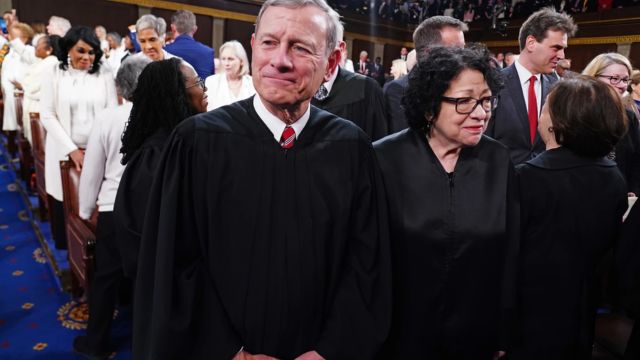WASHINGTON — Chief Justice John Roberts defended judicial independence on Tuesday, saying it is under attack from coercion, disinformation, and the possibility of public officials violating court decisions.
Roberts addressed his concerns in his yearly report on the federal judiciary. It was released during a year in which the nation’s court system was unusually entangled in a fiercely contested presidential race, with then-Republican presidential nominee Donald Trump questioning the integrity of judges who ruled against him while he faced criminal charges for which he denied guilt.
Trump won the contest because Roberts wrote a landmark Supreme Court immunity judgment, which, coupled with another high court decision halting efforts to disqualify him from the ballot, removed barriers to his victory.
Democrats, including President Joe Biden, slammed the immunity decision, calling for term limits and an enforced ethics rule in response to accusations of unreported travels and gifts from wealthy patrons to several justices.
Roberts, for his part, began his letter by recalling a narrative about King George III’s order to remove provincial judges from their lifetime positions, which was “not well received.”
Trump is now preparing for a second term as president with an ambitious conservative agenda, some of which will certainly be legally challenged and brought before the court, whose conservative majority includes three judges nominated by Trump during his first term.
Roberts and Trump battled in 2018, when the top justice chastised the president for labeling a judge who rejected his migrant asylum policy a “Obama judge.”
Roberts slammed Senate Democratic Leader Chuck Schumer’s statements in 2020, while the Supreme Court was deliberating a high-profile abortion issue.
Roberts made no mention of Trump, Biden, or any other specific leader in this year’s annual report. Instead, he said that, even if court decisions are controversial or represent a setback for a presidential administration, other arms of government must be willing to implement them in order to maintain the rule of law.
He cited the 1954 Brown v. Board of Education decision, which desegregated schools, as an example of a case that required federal enforcement despite opposition from southern governors.
“It is not in the nature of judicial work to make everyone happy,” said the judge.
The top judge further condemned elected leaders from all political parties who have “raised the specter of open disregard for federal court rulings.”
“Attempts to intimidate judges for their rulings in cases are inappropriate and should be vigorously opposed,” according to him.
While public officials and individuals have the freedom to criticize verdicts, they must also be cognizant that their words may “prompt dangerous reactions by others.”
Threats against federal judges have more than tripled in the last decade, according to US Marshals Service data. According to Roberts, state court judges in Wisconsin and Maryland were killed at home in 2022 and 2023.
“Violence, intimidation, and defiance directed at judges because of their work undermine our Republic, and are wholly unacceptable,” his words stated.
Roberts also cited disinformation about court rulings as a threat to judges’ independence, claiming that social media can accentuate falsehoods and be used by “hostile foreign state actors” to deepen differences.
Against the backdrop of these heightened divisions, Americans’ trust in the country’s legal system and courts has plunged to a record low of 35%, according to a Gallup poll.













Leave a Reply